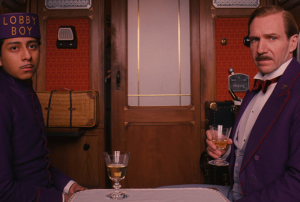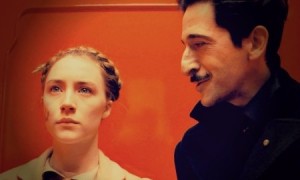Movie Review: ‘The Grand Budapest Hotel’ may be Wes Anderson’s best yet
April 9, 2014
Director Wes Anderson, who holds a very distinctive visual style that is constant throughout all of his movies, has come back to leave fans speechless in his new movie “The Grand Budapest Hotel.”

Released in select theaters on March 7, the movie sets place in pre-World War II Europe in the fictional Republic of Zubrowka, a mountainous European state devastated by war and hardship. In the present, a teenage girl approaches a monument dedicated to a writer in a cemetery. In her arms lays a memoir written by a character only recognized as “The Author”. She begins reading a chapter about a trip he made to the Grand Budapest Hotel in the late 1960s.
The book tells about The Author himself, who encounters the hotel’s old owner, Zero Moustafa, one afternoon, and they agree to meet later that evening. Over dinner in the hotel’s massive dining room, Zero tells him the grand and intricate story of how he took ownership of the hotel and why he is reluctant to close it down. The owner recounts his adventures beginning in 1932 when he worked as a lobby boy, during the final years in which the hotel was extremely popular and of high acclaim.
Zubrowka is on the edge of war, but this of little worry to Gustave, the Grand Budapest’s legendary, dedicated and loyal concierge. Zero quickly becomes Gustave’s most trusted friend, as an ordeal that demands the robbery and retrieval of a priceless Renaissance painting and the duel for a tremendous family fortune becomes the pair’s top priority.

The movie, which features the usual Wes Anderson movie “family” such as Adrien Brody, Jason Schwartzman and Bill Murray, also features Anderson newcomers such as Tony Revolori and Saoirse Ronan.
Visually, “The Grand Budapest Hotel” is very familiar due to the distinct style that Wes Anderson possesses. However familiarity does not mean boring. Instead of going towards different directions in directorial style, Anderson elaborates on the familiar pictorial themes for which he is so famous for, thus making the movie that much more striking.






